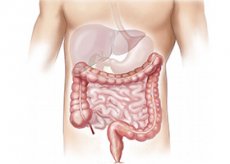New publications
Intestinal microflora influences the development of vascular pathologies
Last reviewed: 02.07.2025

All iLive content is medically reviewed or fact checked to ensure as much factual accuracy as possible.
We have strict sourcing guidelines and only link to reputable media sites, academic research institutions and, whenever possible, medically peer reviewed studies. Note that the numbers in parentheses ([1], [2], etc.) are clickable links to these studies.
If you feel that any of our content is inaccurate, out-of-date, or otherwise questionable, please select it and press Ctrl + Enter.

It turns out that healthy blood vessels are a consequence of adequate microflora in the intestines.
Scientists have been talking about the importance of the balance of intestinal bacteria for a long time: representatives of the microflora not only participate in the processes of digestion of food, but also influence metabolism, the immune system, and even brain activity.
Certain types of microorganisms can increase the risk of metabolic pathologies, while others, on the contrary, increase the body's resistance to such diseases.
But the balance of microflora is not everything. It is equally important how diverse this flora is. It is generally accepted that health problems can arise due to a “misunderstanding” between bacterial groups and immune defense complexes.
The immune system controls all processes occurring in the digestive tract: potential pathogenic bacteria are destroyed as soon as they enter the digestive organs. But in order for this mechanism not to fail, it is necessary that the immune system can always distinguish a useful microorganism from a dangerous one. Oddly enough, this is facilitated by a greater diversity of microflora, since when it is scarce, the immune system relaxes, which contributes to the development of the inflammatory process.
Scientists from the University of Nottingham and King's School London have shared another problem associated with low diversity of gut microflora. Professor Ana M. Valdez and colleagues studied the health of the vascular system in a couple of hundred middle-aged twin participants. It was found that the stiffness of the arterial walls depends on the composition of the gut microflora. With the most diverse microflora, the arterial vessels were less stiff.
In turn, the state of the vascular system affects cardiac function. With excessive vascular rigidity, the heart has difficulty regulating blood flow and adapting the frequency of contractions to the required volume of pumped blood. Of course, hereditary factors cannot be discarded. However, the experiment examined the health of twins with almost identical genetics. And if one twin has more rigid vessels, then heredity has nothing to do with it.
Of course, the scientists took into account the participants' lifestyle, blood cholesterol levels, and the presence of metabolic pathologies - that is, all factors capable of causing a change in the elasticity of vascular walls were taken into account. But, as the scientists claim, the influence of the listed factors was estimated at only 2%, and the influence of intestinal flora - at 10%.
The conclusions made by scientists only confirm that the state of the microflora must be treated very carefully, not suppressing it, but promoting its diversity.
The bacterial composition of the intestine depends mainly on what a person eats, so in many cases the balance and diversity can be adjusted with the help of proper nutrition. At the same time, vegetables, fruits, greens, fermented milk products, as well as wine and tea have a greater influence on the quality of the flora.
The information is published on the pages of the European Heart Journal (https://academic.oup.com/eurheartj/advance-article/doi/10.1093/eurheartj/ehy226/4993201).

 [
[